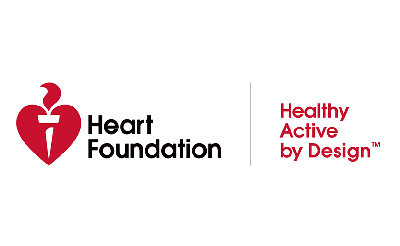Whittlesea Active Travel in Schools
The City of Whittlesea adopted a multi-level, multi-component approach to increasing incidental physical activity in and around schools by influencing the domains of policy, the built environment, community programs and capacity building. Promoting active travel helps students learn healthy habits, and achieve the 60 minutes of physical activity recommended for children each day. Increasing physical activity is a key priority for City of Whittlesea where only 66.1% of children are meeting their daily physical activity needs*. Encouraging more students to walk and cycle to school has the added benefit of reducing traffic congestion and car parking issues.
*Department of Education and Early Childhood Development, 2007, Victorian Child Health and Wellbeing Survey
*Department of Education and Early Childhood Development, 2007, Victorian Child Health and Wellbeing Survey
Promoting healthy habits
The Active Travel in Schools Program was guided by the following aims:
- Influence the design of new suburbs to encourage walking and cycling in and around schools.
- Build the capacity of schools to take a holistic approach to increasing physical activity by engaging their whole school community.
- Increase school participation in school active travel programs delivered by Bicycle Network and VicHealth
- Strengthen partnerships between schools, Council traffic engineers, planners and developers to support active travel amongst school aged children and their families.
To implement the project, City of Whittlesea engaged Bicycle Network to conduct an Active Travel Study across local schools. This assisted in determining active travel barriers and enablers, prioritising recommendations for action and ascertaining the willingness of school principals to lead active travel efforts.
An Active Travel Forum was then held for Council staff across leisure, planning, urban design, traffic engineering and major projects teams to share findings and identify opportunities to coordinate resources.
An Active Travel Forum was then held for Council staff across leisure, planning, urban design, traffic engineering and major projects teams to share findings and identify opportunities to coordinate resources.
A suite of strategies was subsequently implemented at various levels which included:
- Influencing the built environment by incorporating principles that support walking and cycling into local government planning and transport strategies.
- Engaging parents to co-create a local social marketing campaign to increase incidental physical activity.
- Hosting a local Walk to School competition during VicHealth’s Walk to School month to incentivise active travel.
- Coordinating leadership training for 28 students across three schools to support student-driven demand for active travel to school.
- Supporting students to develop videos advocating to Council for improved pedestrian infrastructure to enhance walkability. This prompted conversations at the Council executive leadership level across Planning, Transport and Community Services to collaborate for greater health outcomes for communities.
- Linking schools to Walk and Ride to School programs.
- Aligning active travel activities to the physical activity benchmarks of the Achievement Program.
- Establishing a City of Whittlesea, School Active Travel Network.
- Developing a kit to support schools to develop travel plans. This activity included training for Council engineers to encourage broader promotion to schools and up-take.
- Offering a $750 grant to the first 6 schools to develop a travel plan (funded through a VicHealth Walk to School 2016 grant).
Project team
- City of Whittlesea
- Bicycle Network
- Victoria Walks
- VicHealth
Project Cost
Ongoing
Health Value
- The project offers health value by encouraging and facilitating active travel among children in the City of Whittlesea. Between 2013 and 2105, an additional 4,177 children travelled actively to school, supporting their efforts in meeting recommended daily physical activity needs.
Economic value
- Schools that implemented active travel focused behaviour change strategies became more connected with Local Government teams, Bicycle Network and Victoria Walks. This in turn enabled them to access free incursions, financial support for pedestrian infrastructure works and grants to support implementation of their school travel plans.
- Five schools received footpath decals courtesy of Bicycle Network to engage families in active travel, encouraging their use of footpaths to walk.
- By building relationships with schools via the School Active Travel Network and encouraging schools to collect student catchment data via the School Travel Plan Kit - Council engineers were able to make more informed, objective decisions when allocating funds to improve pedestrian infrastructure around schools. This also ensured that funds distributed were based on actual and not ‘perceived’ need.
Environmental Value
- Strategies applied in children’s settings can be scaled up to encourage more adults to use active travel for commuting and recreation. This can prevent unnecessary car travel and reduce carbon emissions.
Social value
- The project activities and events facilitated opportunities for social engagement and reinforced a sense of community. Schools implementing active travel promotion strategies also received acknowledgment and recognition through the Achievement Program, by meeting the benchmark requirements of the physical activity health priority area.
Use value
- Healthy Active by Design principles were incorporated in planning for new suburbs, to ensure that future public infrastructure supports health, safety and social cohesion.
Stay informed. Sign up to our newsletter.
I agree that I have read and I accept the Heart Foundation's Privacy Statement.
